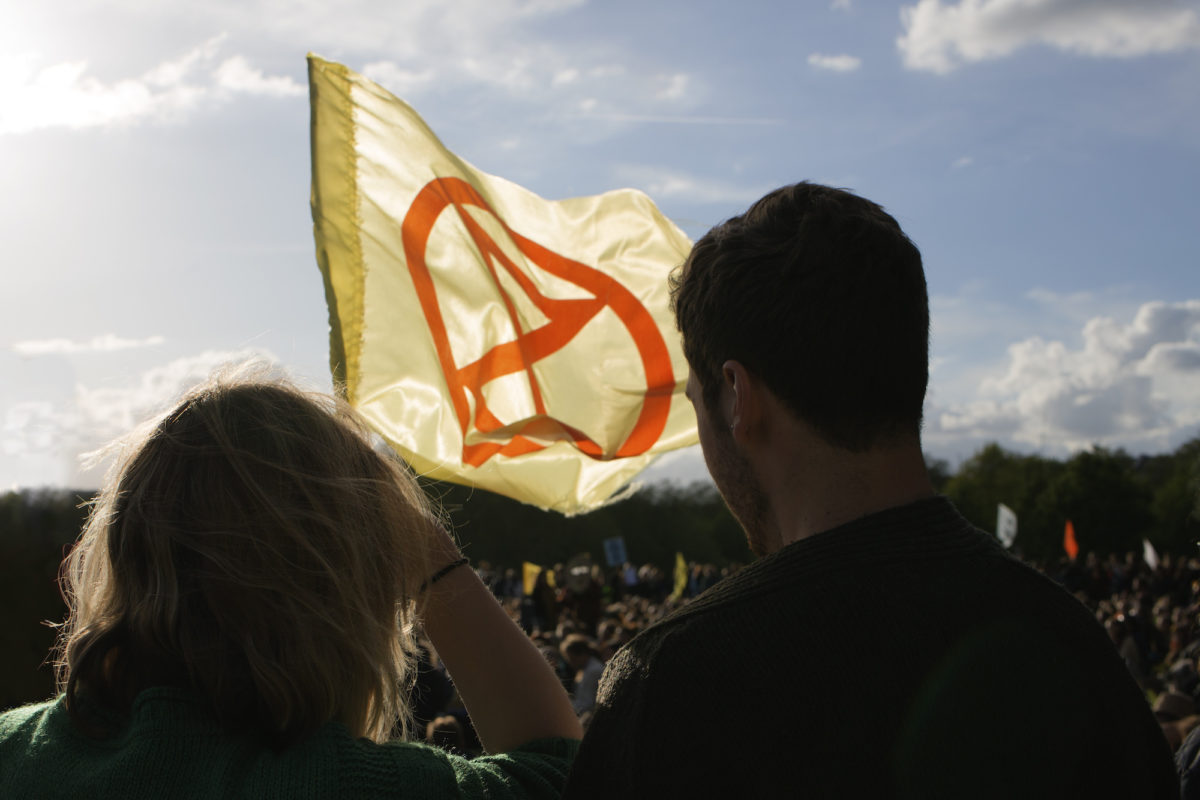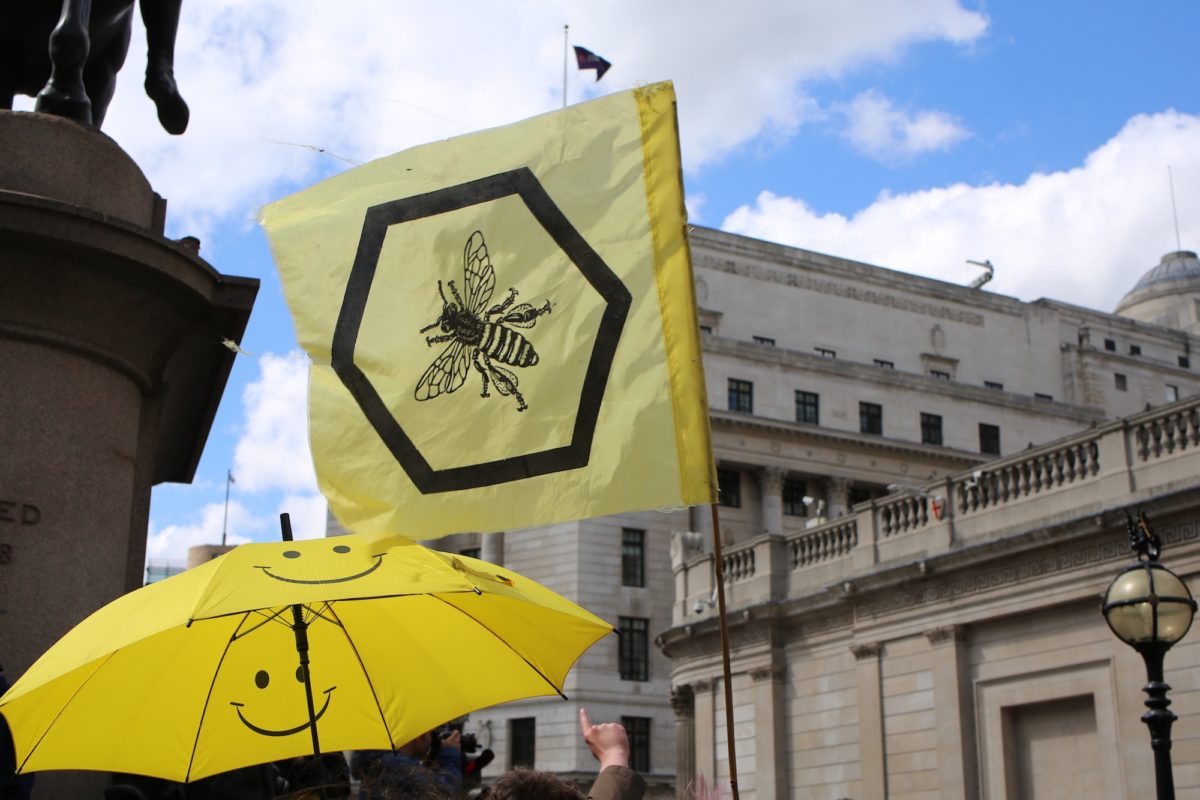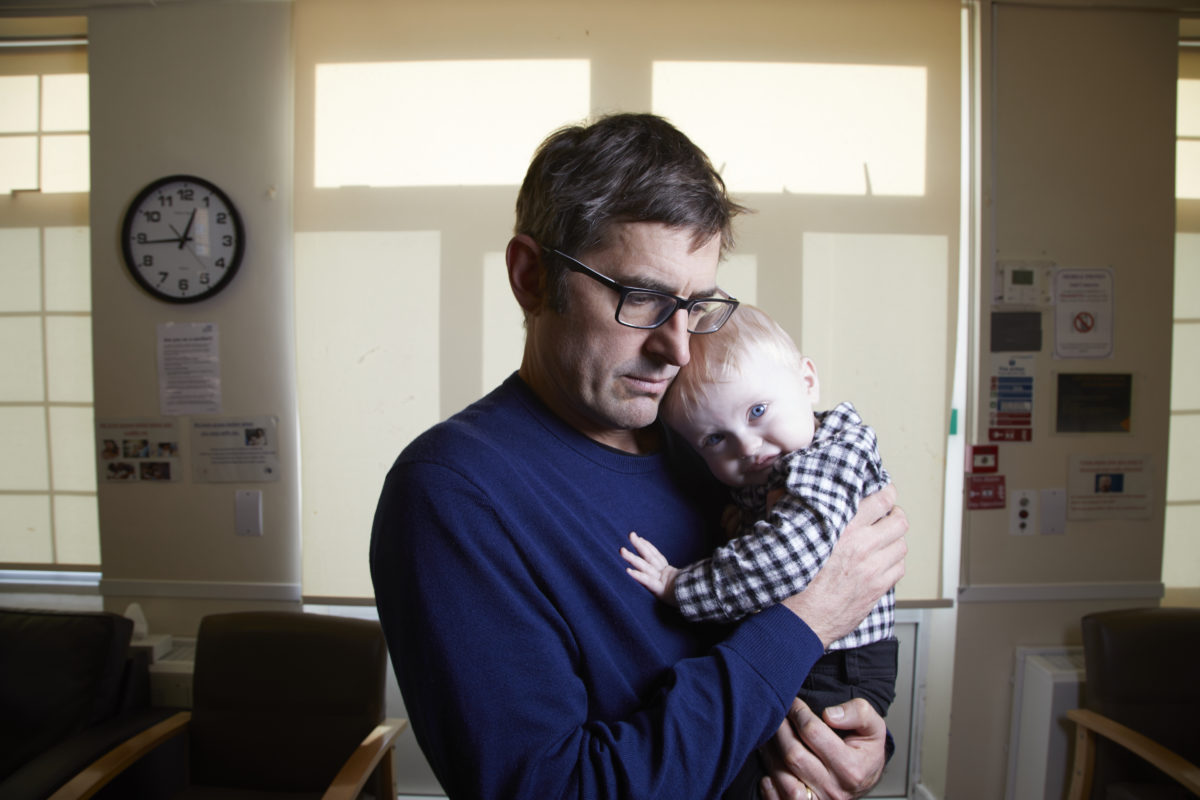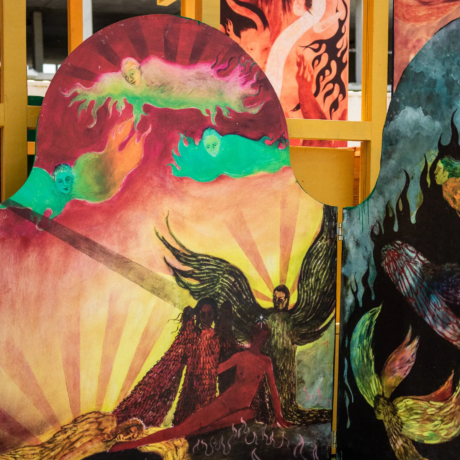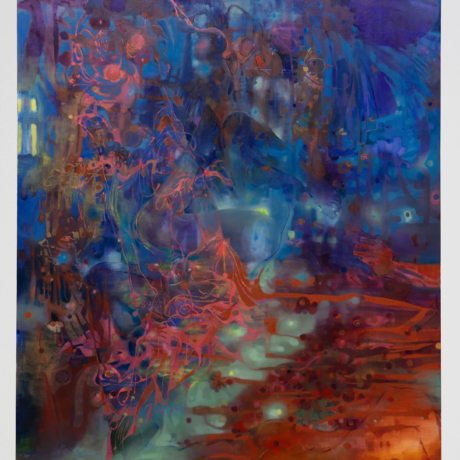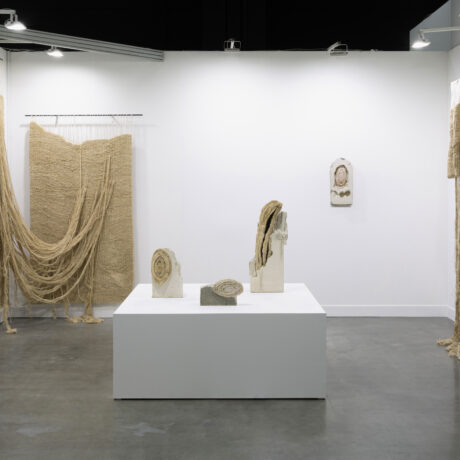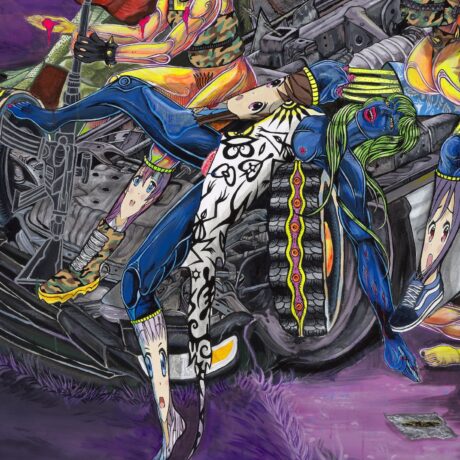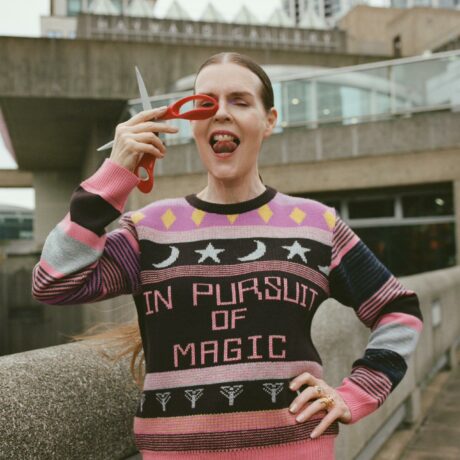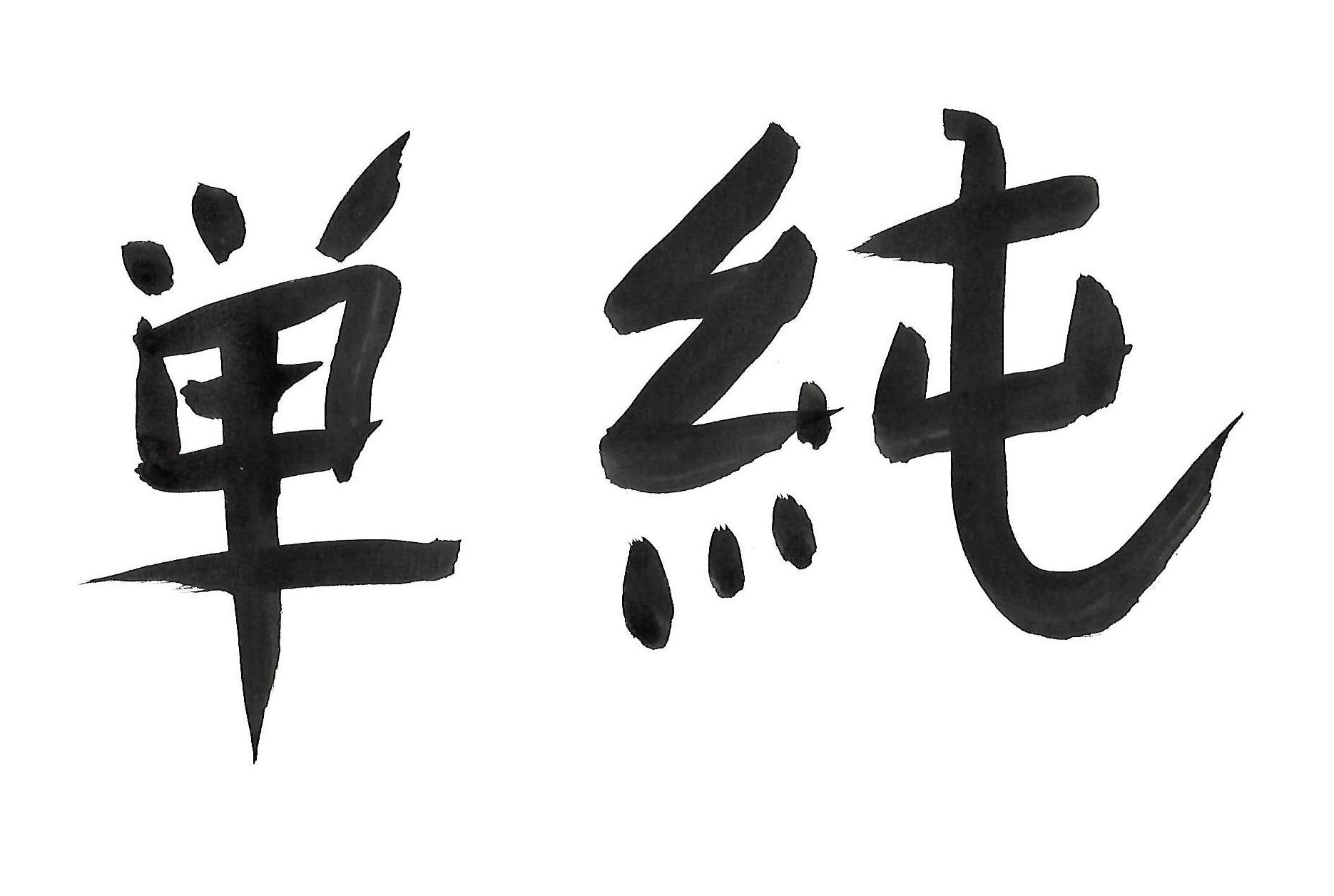
There are times when I feel like a significant portion of my day is taken up with writing, rewriting and reorganizing lists: to-do lists, shopping lists, task lists, holiday destination lists, list of artists to research, lists of exhibitions to see, lists of friends to catch up with, lists of restaurants to try… and here I am writing yet another list. Somehow a list helps one feel on top of things; that the chaotic and complex environment we live in is at least partly within our control. It’s a fantasy, of course, but gives a sense of stability in an otherwise unstable world.
- Extinction Rebellion, London. Photography by Louise Benson
Simplification is a useful coping strategy in powerful times, but it is also increasingly being used as a marketing tool. There is such a cacophony of information and activity out in the world that to cut through it all and be heard, or seen, or taken seriously requires absolute directness of message. The recent success of Extinction Rebellion in engendering systemic change (or at least, taking steps in that direction), in a way that no ecological action group has managed before, seems to lie in their simplicity of communication—clear, consistent branding, and three demands. Through simplifying what is an extremely complex issue, they have cut through the noise, rallied impressive numbers of people and taken action collectively, without violence or major disruption. On top of all that, the recent XR actions in London were incredible creative expressions of community—I spent a few hours down at Waterloo Bridge, offering face-painting to the many children scampering about, and the atmosphere was utterly magical. There were all sorts of people getting up on the makeshift stage to sing, speak or read poetry; a drama group gathered and encouraged passers-by to join in with their improvizations; homemade banners and flags were scattered all around, sticking out of hay bales and plant pots. It felt like a vision for a better future.
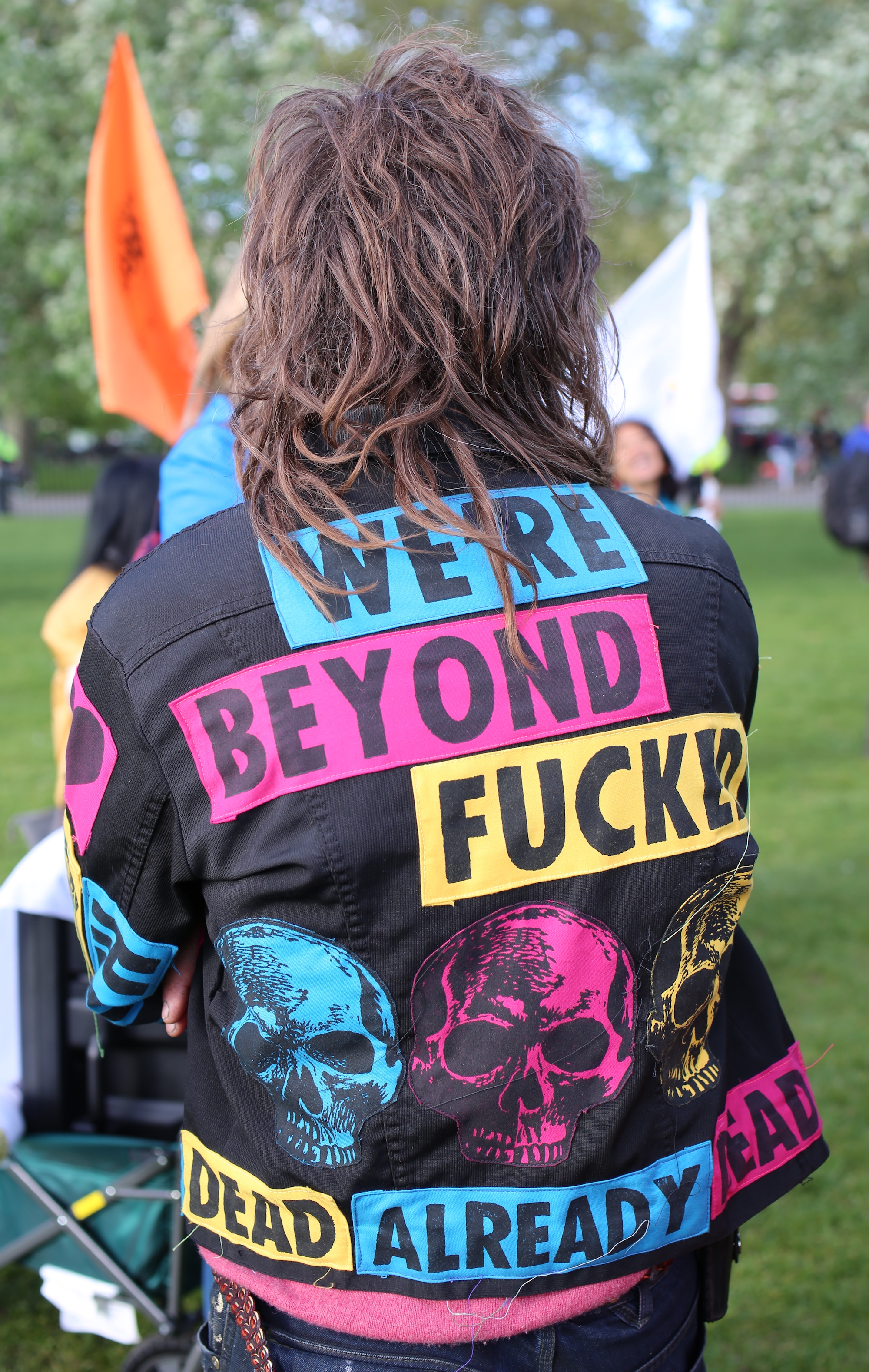
“Simplification is a useful coping strategy in powerful times, but it is also increasingly being used as a marketing tool”
Appreciation of the simpler things in life seems to happen much more readily in communities outside the hustle and bustle of major cities. Last weekend I was visiting my parents in rural Oxfordshire while the annual Oxfordshire Art Weeks was taking place. On a very sunny Saturday afternoon, my parents and I meandered slowly around their local village, wandering in and out of artist studios, church halls and high street shops all displaying the work of local artists and craftspeople. Visitors stopped in the street to say hello, pass positive affirmations to each other and chat about how talented their community was. I’m ashamed to admit that at first it felt slightly ridiculous, but as time went on I let down my “London guard” and allowed myself to see how full of joy everyone was—there was no pretention, no attempt to outdo each other, no competition or snobbery. It was pure and simple enjoyment—something rarely seen or felt in the big city, which perhaps is a significant factor in the high levels of anxiety and mental health issues facing urban populations. I wonder if it’s possible to bring that sense of humble joy into our city lives somehow.
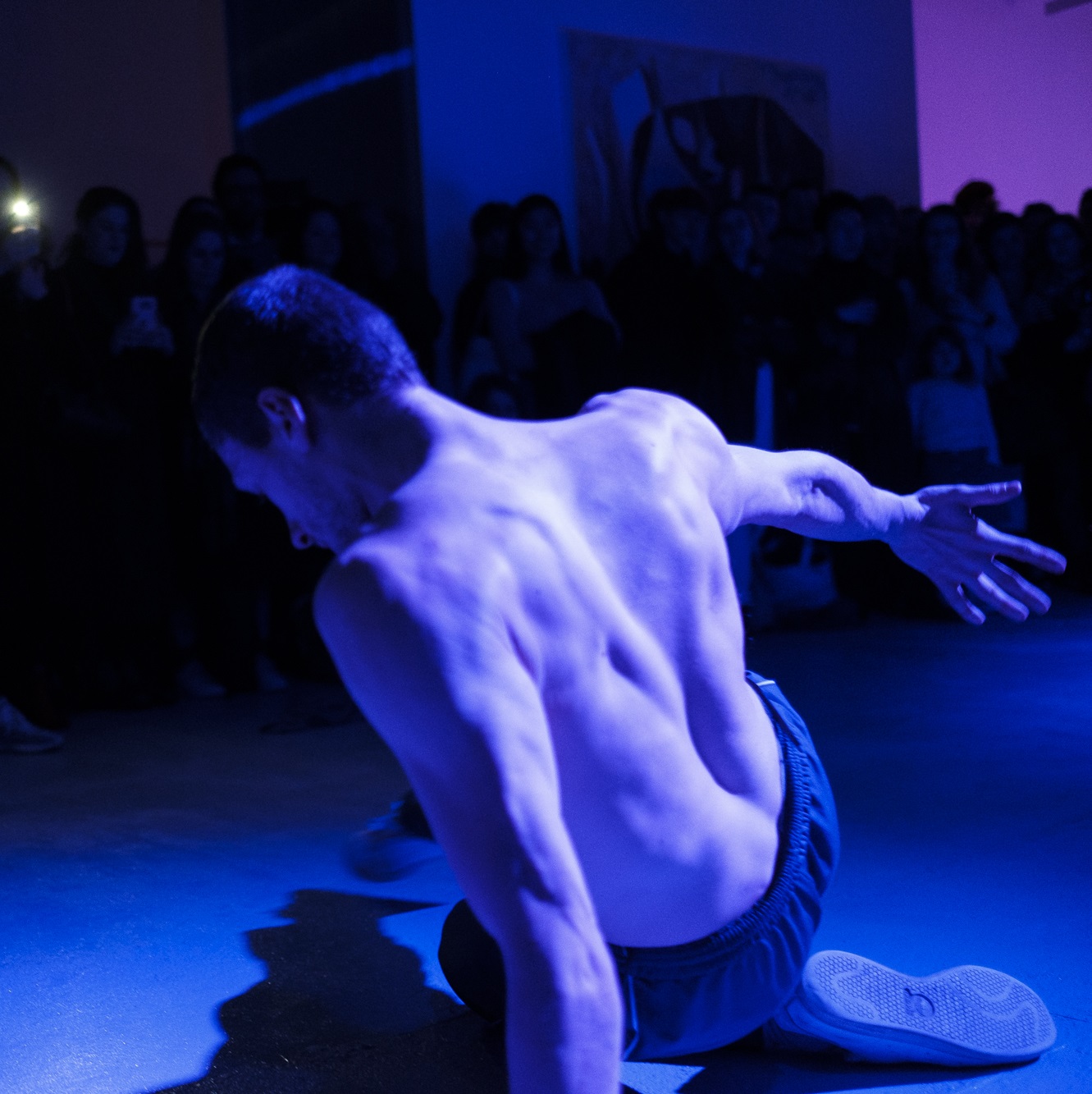
Simplicity is becoming a bit of a target for us at Elephant West too. As we look back at the first six months of operation, we are able to start making clearer decisions about the future. We have tried out a number of different types of project in the space; photography, installation, sculpture, painting, sound, moving image, music, film and dance—each of which lent a different atmosphere and feeling to the building. The first year of running a new venue is necessarily experimental—time must be given to testing the capacity and the boundaries of what’s possible—but with the first set of experiences under our belt we can now look to refine the programme and clarify our intent. There will be more experiments to come over the summer and into the latter part of the year, but the aim is for the programme to be a more honed beast in 2020.
- Left: Perfect Day. 563. Sophie Green, Anna L; Right: Louis Theroux, Mothers on the Edge © BBC. Photographer: Richard Ansett. Both currently showing at Elephant West
This is an exciting point in the growth of our baby, Elephant West—she’s just beginning to walk, and we want to make sure she takes confident steps. As she does so, we seek support from our neighbours and new friends, encouraging other voices and ideas into the development of our programme. On 1 June, we launch our first collaborative project with the Bush Theatre; Buzz from the Bush, created by theatre writer Alissa Cooper and visual artist Kristina Chan. We are also looking to collaborate with the amazing new two-thousand-seat White City Theatre, currently being constructed just across the road from us, on a community exhibition over the summer. In both instances, keeping things simple was the key to making the partnership possible; a digital co-commission between a writer and an artist with the Bush (which specializes in promoting emerging writers), and a community call-out for artwork to be exhibited across two sites with White City Theatre (who have strong aims for community outreach). Keep an eye on our social media channels for further information on both projects.
“I wonder if it’s possible to bring that sense of humble joy into our city lives somehow”
I recently qualified in the practice of Reiki, a Japanese technique of energy healing. To me, it’s not just about healing others; it’s also a spiritual and very personal practice that is starting to infiltrate all aspects of my life. The practice of Reiki is governed by five key principles (another handy list!):
Just for today…
- Do not worry
- Do not be angry
- Be grateful
- Work with diligence
- Be kind
The clarity of these principles is beautiful, and can be applied to almost everything. Shouldn’t these really be the values we all try to live by? When a complex set of ideas is boiled down to its essence in this way, it becomes accessible to everyone. All the world’s religions and ideologies have relied on the use of narrative and metaphor to explain their thinking and persuade large numbers of people to follow their doctrines; but perhaps the most effective tool for mass cooperation, now and into the future, is simplicity.
